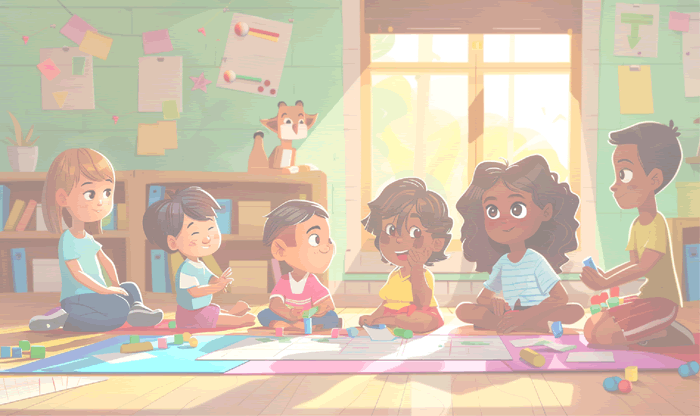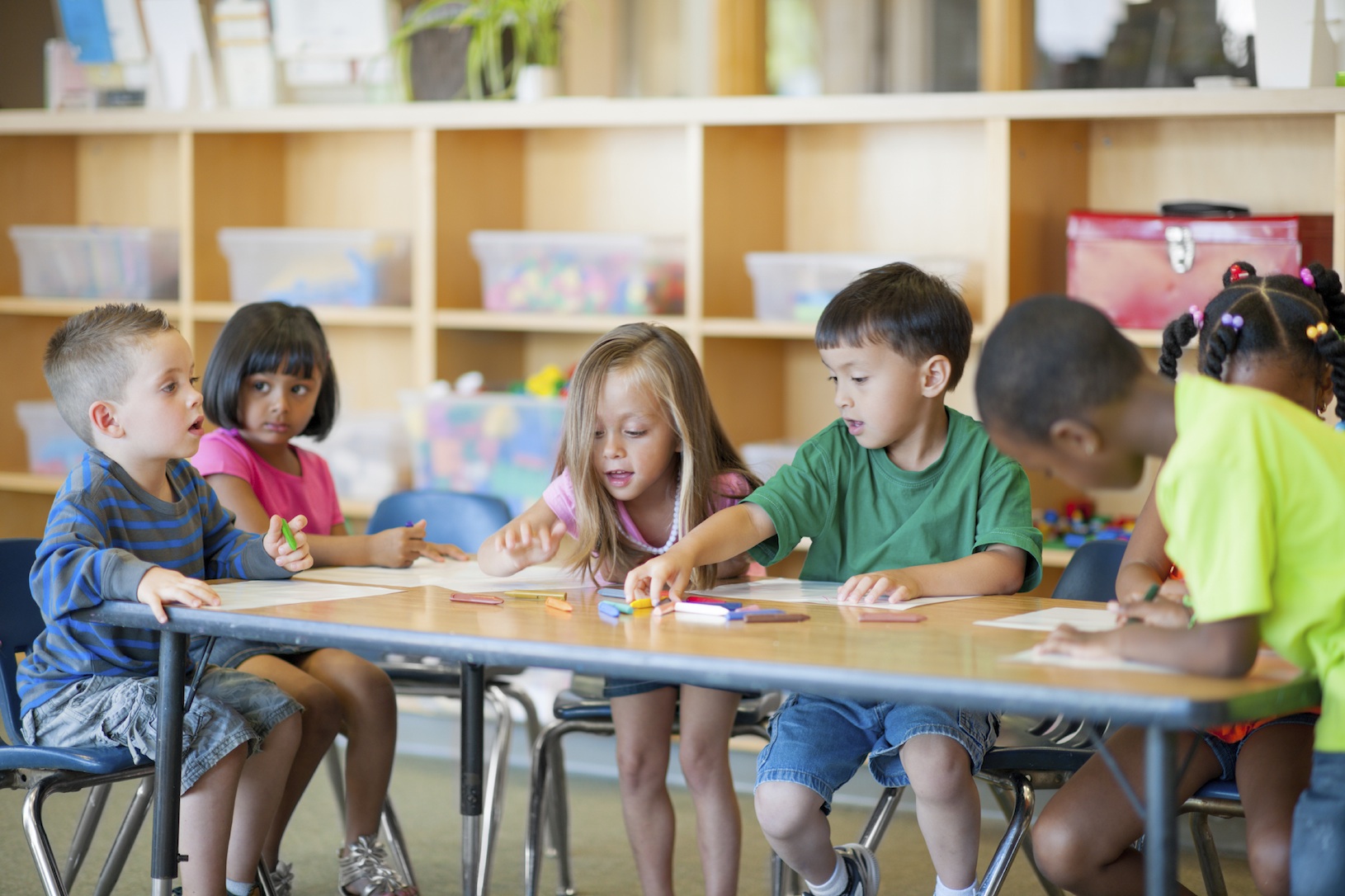Comprehending Elementary School: Secret Truths and Exciting Activities for every single Pupil
Grade school functions as an essential structure for pupils, mixing scholastic learning with the advancement of social skills. This duration is essential for fostering psychological intelligence and resilience. Engaging activities can enhance interest and inspiration, however the difficulty depends on discovering the appropriate equilibrium. As educators and moms and dads browse this landscape, understanding the complex nature of grade school ends up being crucial. What techniques can efficiently sustain trainees in this transformative stage?
The Relevance of Social Abilities in Grade College
Scholastic understanding is essential, social skills play an important duty in grade institution growth. Throughout these formative years, youngsters discover to communicate with their peers, negotiate problems, and build friendships. Social skills encompass a variety of expertises, consisting of effective communication, compassion, and synergy. These capacities enable pupils to navigate the complexities of social characteristics within the classroom and past.
As youngsters engage in group tasks and collective jobs, they develop vital interpersonal skills that add to their emotional knowledge. This foundational expertise fosters a sense of belonging and enhances general wellness. Furthermore, kids who have solid social abilities have a tendency to experience much better academic outcomes, as they are more probable to get involved proactively in conversations and seek assistance when needed.

Basically, the cultivation of social abilities during quality institution is not just beneficial yet essential for cultivating a well-shaped person prepared for future challenges.
Stabilizing Academics and Creative Thinking
As students progress with quality college, balancing academics with creativity comes to be necessary to their overall advancement. This balance fosters essential reasoning, analytical, and innovation, skills necessary for future success. Academic topics give foundational expertise, while imaginative tasks encourage trainees to express themselves and discover originalities.
Including creativity into the curriculum can boost engagement and inspiration, allowing pupils to connect with the product on a deeper degree (Kindergarten). Tasks that blend subjects, such as art and science, can stimulate inquisitiveness and promote a love for learning
Creative outlets like music, drama, and visual arts help trainees develop emotional knowledge and strength. These experiences add to a versatile education, preparing students for a swiftly transforming globe.
Inevitably, prioritizing both academics and creativity gears up trainees with a diverse skill set, enabling them to navigate difficulties and seize opportunities efficiently throughout their instructional journey and past.
Engaging Tasks to Improve Knowing
Numerous engaging activities can substantially enhance learning experiences for grade college trainees. These tasks not only make discovering satisfying yet likewise assist reinforce necessary ideas. For example, hands-on experiments in scientific research courses allow pupils to check out concepts almost, cultivating interest and much deeper understanding. Likewise, interactive narration sessions can boost literacy abilities while stimulating imagination and creativity.
Team tasks urge partnership, teaching pupils the significance of teamwork and interaction. Integrating modern technology, such as educational video games and electronic quizzes, can likewise captivate trainees' attention and make finding out more dynamic. Crafts and arts jobs can aid in the development of fine motor abilities while providing an innovative outlet.
Furthermore, outdoor tasks, like nature walks or scavenger pursues, connect students with the setting and advertise physical health. By integrating these engaging tasks into the educational program, instructors can produce a promoting discovering atmosphere that deals with varied understanding designs and maintains students inspired.
The Function of Parental Support in Education
Parental assistance plays a substantial function in the instructional journey of elementary school trainees. Research study suggests that when parents actively involve in their youngster's education and learning, it positively impacts scholastic efficiency, inspiration, and overall health. Kindergarten. Regular involvement, whether via research aid or going to institution events, cultivates a feeling of safety and strengthens the worth of education and learning
Additionally, efficient interaction between parents and teachers improves the finding out experience. Moms and dads who collaborate with educators can much better comprehend their investigate this site child's staminas and difficulties, permitting customized assistance. This partnership motivates accountability and sets high expectations for pupils.
Furthermore, parental perspectives towards education and learning substantially influence kids's viewpoints. When parents show a positive overview on discovering, it cultivates curiosity and strength in their children. Inevitably, the structure of parental assistance is important in shaping students' attitudes, habits, and academic success throughout their grade college years.
Developing a Positive Understanding Atmosphere
Developing a favorable learning environment is vital for cultivating scholastic success and emotional health among quality school trainees. Such an atmosphere promotes interaction, encourages collaboration, and improves inspiration. Teachers play a considerable role in establishing this ambience by implementing approaches that focus on regard, assistance, and inclusivity.
Classroom management methods, such as clear assumptions and positive comments, are necessary in nurturing a sense of security. In addition, including varied mentor methods can deal with different learning designs, guaranteeing that all pupils really feel valued.
Urging peer interactions and team activities likewise grows social abilities and a sense of neighborhood. Celebrating success, regardless of just how small, enhances positive behavior and increases self-worth.
Inevitably, a favorable knowing setting not just boosts academic performance but likewise fosters psychological durability, aiding pupils grow both inside and outside the class. This foundation is substantial for their overall growth and lifelong learning journey.
Strategies for Establishing Critical Thinking Skills
Effective strategies for developing essential believing skills in elementary school consist of encouraging inquiry-based understanding and advertising analytical activities. Inquiry-based understanding promotes curiosity and allows pupils to discover questions, while analytical activities challenge them to apply their expertise in practical situations. Together, these techniques enhance pupils' ability to believe seriously and independently.
Encouraging Inquiry-Based Learning
How can instructors cultivate a classroom atmosphere that advertises inquiry-based discovering? Educators can produce an atmosphere that motivates inquisitiveness by posing flexible inquiries and assisting in conversations that trigger pupils to check out different perspectives. Motivating students to ask their very own inquiries can even more stimulate their essential reasoning abilities. Integrating hands-on tasks and real-world issues enables pupils to involve straight with the product, cultivating much deeper understanding. Furthermore, supplying possibilities for joint jobs can enhance peer-to-peer discovering, where trainees share insights and construct on each various other's ideas. By integrating modern technology and sources that support exploration, teachers can help pupils take ownership of their understanding journey, thereby cultivating a state of mind of inquiry that expands past the class.
Promoting Problem-Solving Activities
While fostering problem-solving activities in the classroom, teachers can considerably improve trainees' essential thinking skills. By incorporating hands-on projects, seminar, and real-world scenarios, teachers motivate trainees to assess scenarios, recognize patterns, and explore numerous options. Engaging pupils in joint difficulties not just promotes team effort but likewise boosts their ability to express thinking and validate my website their choices. Furthermore, incorporating technology through coding simulations or workouts can stimulate innovative analytic approaches. Assessing trainees' idea procedures with reflective methods permits for deeper understanding and enhancement. Overall, promoting problem-solving activities cultivates an environment where essential assuming flourishes, outfitting pupils with crucial abilities for future academic and life obstacles. These methods eventually prepare learners to navigate intricate problems with confidence and technology.

Frequently Asked Concerns
What Age Do Kid Commonly Begin Elementary School?
Kids normally begin grade college at around age link six. This age can differ somewhat depending on regional instructional plans and specific readiness, yet six years old is one of the most typical beginning point for formal education and learning.
Just How Can I Aid My Youngster With Research?
To aid with research, parents can create an organized environment, establish a routine, motivate questions, provide sources, and provide assistance without giving direct answers, promoting independence and crucial reasoning in their youngster's knowing procedure.
What Prevail Quality Institution Understanding Difficulties?
Common elementary school discovering challenges consist of difficulties with reading understanding, mathematics principles, focus span, and social skills. These obstacles can impact academic efficiency and need tailored assistance to help pupils achieve their complete potential.
How Can Moms And Dads Interact Effectively With Teachers?
Efficient interaction between instructors and moms and dads can be accomplished with routine updates, open discussions, set up conferences, and energetic listening. Developing a joint partnership fosters understanding and sustains the youngster's academic journey positively.
What Extracurricular Activities Are Offered in Grade School?
Quality colleges generally offer a range of after-school activities, consisting of sports groups, songs and art programs, drama clubs, and academic competitors. These activities boost social skills, foster team effort, and encourage creativity among pupils outside the class.

Quality college serves as an essential structure for trainees, mixing academic discovering with the growth of social skills. Various engaging activities can considerably boost finding out experiences for grade school pupils. Developing a positive learning environment is important for promoting academic success and psychological wellness among quality institution students. Inquiry-based understanding promotes interest and permits trainees to discover concerns, while analytical activities challenge them to apply their knowledge in functional situations. While fostering analytic activities in the class, educators can considerably boost pupils' crucial reasoning abilities.